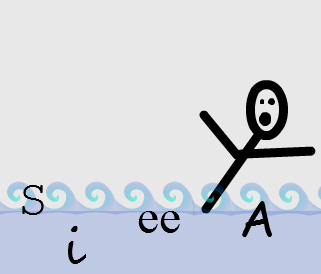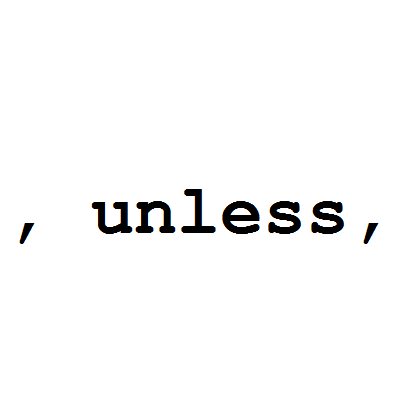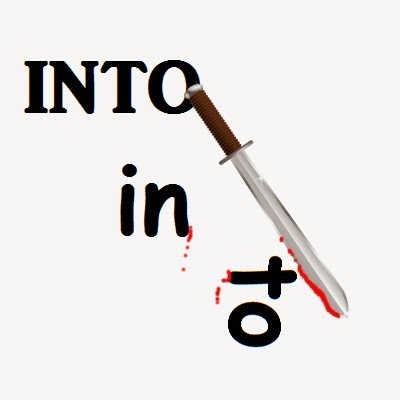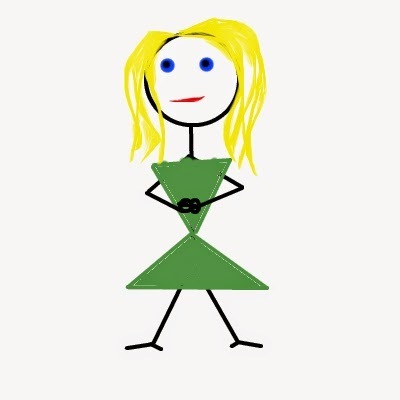Jade Varden's Blog, page 21
December 15, 2014
Writing 101: Can You Always Come Last?
I've said this several different times, and in a few different ways, but here it is: it's really, really hard to be a writer. It's hard in ways you won't think of and hard in ways you can't even imagine. It doesn't get easier. And even if you still want to do it after reading that, and I know you do, you have to ask yourself a question: can you always come last? Because when you are a writer, you probably will.

From Hero to Zero
Even if you don't use an entirely different pen name, like I do, you have to create an entire new persona when you're in author mode. You can't put all your opinions out there on social media, you have to stay polite and professional even when someone is coming at you with criticism, and above all you've got to keep writing. You have to write, and you have to research. You have to edit. And of course, you've got to promote. Then you've got to make the cover, and the trailer, and write a blurb...
In other words, you -- the real you -- is going to come last. And you're going to come last all the time.
If you're like a lot of indie authors, you also have a day job. While you're doing your job, you've got to be in your professional work persona. For some, that may be another pen name. You may work as a writer, or want to, and that means being someone other than yourself. And either way, you have to put your work responsibilities ahead of what you really want to do, which is hang around and write (probably).
But once work is over, you'll have to fulfill your indie responsibilities. You'll have to do all that researching and promoting that we talked about. If there is any time left over, you probably have average life responsibilities. You'll have to bathe yourself, and straighten things up, and all those other mundane tasks that take up a lot of time.
If you still have time after all that, then you can take time for yourself. But remember this: you always come last. Use it for motivation, and go write about it.

From Hero to Zero
Even if you don't use an entirely different pen name, like I do, you have to create an entire new persona when you're in author mode. You can't put all your opinions out there on social media, you have to stay polite and professional even when someone is coming at you with criticism, and above all you've got to keep writing. You have to write, and you have to research. You have to edit. And of course, you've got to promote. Then you've got to make the cover, and the trailer, and write a blurb...
In other words, you -- the real you -- is going to come last. And you're going to come last all the time.
If you're like a lot of indie authors, you also have a day job. While you're doing your job, you've got to be in your professional work persona. For some, that may be another pen name. You may work as a writer, or want to, and that means being someone other than yourself. And either way, you have to put your work responsibilities ahead of what you really want to do, which is hang around and write (probably).
But once work is over, you'll have to fulfill your indie responsibilities. You'll have to do all that researching and promoting that we talked about. If there is any time left over, you probably have average life responsibilities. You'll have to bathe yourself, and straighten things up, and all those other mundane tasks that take up a lot of time.
If you still have time after all that, then you can take time for yourself. But remember this: you always come last. Use it for motivation, and go write about it.
Published on December 15, 2014 05:30
December 14, 2014
Song of the Sea: Sneak Peek
 Now available for pre-order!!
Smashwords
Amazon
Kobo
Now available for pre-order!!
Smashwords
Amazon
Kobo
“All set for your school project?” As always, my mom was standing at the stove when I entered the kitchen the next morning. Dad was long gone on the boat, out fishing. He would finish up about the same time I finished school, leaving him free to greet me when I came home. For as long as I could remember, my mom sent me off to school in the mornings and my dad was there to make sure I got home in the afternoons. By that time, mom was usually standing out on the deck—or by the bay window, in bad weather—looking out at the ocean. “I think so.” I slipped into my usual chair at the kitchen table, still trying to hold onto the dream I had during the night. I could only vaguely remember bits and pieces of it, but I was sure it involved Luke, and I was pretty sure we kissed in the dream. If only I could remember what it was like, maybe I wouldn’t make a fool of myself if he ever kissed me for real. After the two false starts, and the embarrassment at dinner, Luke was quick to leave at the end of the night. He mumbled “good night,” and practically ran out to his father’s truck after we finished eating. He didn’t even hold my hand again. How would he act at school today? I suddenly became aware my mom had been talking to me when I felt the roll of paper towels hit me in the side of the head. I looked over at her. “Sorry, what?”She laughed. “You must be thinking about that cute boy who was over here last night. I was asking you what you found to use for your school project. With all the excitement, I forgot to ask.” I nodded. Dad had monopolized the discussion last night after my mom’s flub. As it turned out, Dad was a huge fan of Luke’s father’s artwork. Come to think of it, no wonderLuke didn’t want to kiss me after he spent most of dinner talking to my dad. “I found this old seal skin up in a trunk. Maybe it belonged to Grandpa, you think? Didn’t Dad say that he…what?” I stopped when I noticed the strange look that had come over my mom’s face. “Can I see it?” Her voice was hoarse when she asked the question, but I barely noticed it at the time. I was busy thinking about Luke, and school, and catching the ferry on time. I’ve often wondered what might have happened if I’d acted differently, if I’d stopped long enough to ask my mom some questions. If I’d done anything but what I did do. What I did was shrug, reach into my book bag, and unwrap the old animal skin I’d found and placed in a plastic bag to take to school. As I shook it out, I might have heard my mom make a strange sound, but I wasn’t sure. “This thing.” I held it up. My mom reached her hand out, then quickly pulled it back. “It’s lovely. May I…may I have it?” “I’ve got to take it to school.” I folded it and shoved it back into the plastic. “Be careful with that,” my mom snapped. I looked up at her, surprised. “I think maybe it did belong to your grandpa. You know how Dad gets about Grandpa’s things,” she explained. “May I have it after school, then?”“Sure. I don’t care.” I was barley paying attention. I wanted to eat my cereal quickly, get on the ferry and maybe find Luke. Maybe he would sit next to me on the ferry. Maybe we would walk into school together. Maybe he would even hold my hand again. “Today?” My mom pressed.“Yeah, today. I gotta go, Mom. I don’t want to be late for school.” I grabbed half a piece of toast, scooped up my bag and kissed her on the cheek before I went out the door. It was one of the last times I ever saw my mother again.
***
“You never called me back last night!” Stacey wore a wounded expression on her freckled face. “That’s because I didn’t want to re-live it. My mom embarrassed him, and then my dad spent the whole night asking Luke about his dad,” I sighed and slid into my usual seat beside Stacey, glancing around to see if Luke was already on the boat. He wasn’t. I pulled out my phone to check the time—ten more minutes before the ferry pulled out of port. “Oh no,” Stacey groaned. “How did your mom embarrass him?” “Well,” I smiled. “Actually, that part wasn’t so bad. I mean, for me.”“Tell me!” I grinned and leaned forward, ready to relate the whole story, when I felt the air around me change. I knew instantly that Luke was on the ferry, knew that when I looked up he would be looking back at me. “He’s here,” I breathed, my eyes lifting to find him. “I think he’s coming over here,” Stacey hissed. He was. With a determined stride, Luke walked right up to us and jerked his head toward the bench seat opposite ours. “Morning. Mind if I sit here?” I shook my head quickly. “Why don’t you sit here?” Stacey jumped up like she was sitting on a pile of springs, she got to her feet so quickly. In one motion, she pulled her book bag and her purse over her shoulder. “I’ll go up front and grab Paul when he gets on, so he knows where we’re sitting,” she offered. Stacey moved around Luke a little too closely, forcing him to move nearer to the seat she wanted him to take. “Good morning,” I smiled at Luke as he slid into the bench next to me. “Sorry about Stacey. She can be a little pushy.” “That’s okay.” Luke’s smile never failed to take my breath away. “I’d rather sit next to you than Paul anyway.” “Yeah, me too,” I answered.“I never thanked you for dinner last night. So, thank you.” Luke’s face was so close to mine, I could see the gold flecks in his brown eyes. “That’s okay,” I whispered. “I don’t think I really thanked you for helping me with our English project. So, thank you.” My mouth felt dry. Luke was giving me that look again. What if he kissed me right here, on the ferry, in front of everyone? “Listen, Brenna. I was wondering if maybe you’d like to do something this weekend. Like maybe go to the mainland and see a movie or something?” “Yeah,” I smiled. “I would like that. A lot.” He smiled back at me. “So would I.” We were sitting there, grinning at each other, when Stacey and Paul walked up. “Well, I found him,” Stacey announced breezily as she sat down. The boat whistle sounded just after her words, halting conversation for a few moments. Paul Smithson was a tall, skinny boy with longish black hair he wore parted down the middle. He always wore boating shoes. I’d gone to school with him since kindergarten, and Luke was the only friend I’d ever known him to have. “Morning, Paul,” I offered. “Morning,” he muttered, shooting a questioning look at Luke, who shrugged back. “Did you finish your English project?” I asked him.Paul shot me a strangely guarded look, face expressionless. “Yes.” “Well,” Stacey quickly filled the awkward silence. “I finallyfinished mine at the last minute, as usual. Talk about epic. I was digging around in our attic for three hours.” She leaned back against the bench and quickly launched into her narrative, entertaining us all the way to school. Midway through the ride, Luke smiled at me and casually wrapped his hand around mine, which I’d left sitting next to him on the bench just in case. I couldn’t concentrate on anything Stacey said for the rest of the trip.
Luke and Paul joined Stacey and I in the hallways between classes most of the day. We walked together to first period Math, from there to Art and then to Biology, where Stacey and I whispered excitedly about the development for the entire hour. I looked for them all through lunch, but didn’t see a sign of them. I didn’t see Luke again until English, which we had fifth period. He sat near the front, of course, while Stacey and I had two seats next to each other near the back of the class. I had to walk right past him as I made my way toward the front of the room carrying my project. I felt him brush my arm as I passed, and shivered with a little spark of delight. My voice started out a little shaky as I shook out the skin, addressing the very back of the room where Stacey maintained an encouraging smile. “I found this in a bunch of my dad’s boating stuff. It’s a seal skin that belonged to my grandfather, Sean Douglas.” “It looks really thin for a seal skin.” The heckler was Charles Goode, who always had an opinion on everything. “Well, that’s what it is,” I shot back. “It represents my family’s history on the water, which goes back four generations,” I quickly launched into my presentation. “My great-great-grandfather came to Maine from New York about a hundred and fifty years ago, during the Potato Famine in Ireland. He loved the sea, so he came to live on the islands. And my family’s been here, fishing, ever since. I think my grandfather got this skin when he went up to the Arctic Circle.”“Thank you, Miss Douglas,” Mrs. Arnold sounded bored, but she always sounded that way. “You’ve written your report?” “Yes, ma’am.” I walked toward the corner of the room where her desk was located. Mrs. Arnold spent a few moments examining the skin before she nodded. I dropped the report on her desk, folded the skin, and went back to my desk. I carelessly shoved the skin back into my book bag. I didn’t think about it again that day.
***
The first thing I did, most afternoons, was run up to my room to drop off my book bag. I usually had a snack with my dad in the kitchen before I worked on homework or called Stacey to dissect the day. But today, all I could think about was Luke. He sat next to me again on the ferry ride home, and just before we docked he asked if I wanted to come over for dinner. It only took me a second to say yes.It would take much longer to figure out what I was going to wear. “Hi, Dad! No snack today—I’m going to the Allens’ for dinner and I have to get ready!” I didn’t pause to wave as I ran through the kitchen.“Slow down!” He laughed at me as I buzzed by. When I got up to my room, I threw my backpack on the bed and ran for the closet. I forgot all about the conversation I’d had with my mom that morning. If only I hadn’t. If only I had remembered that she wanted the skin. If only I had asked her why she wanted it. If only I had said no, you can’t have it. Everything would be different now.

Published on December 14, 2014 09:30
December 11, 2014
Writing 101: Sinking into the Story
It's not enough to have a great idea that's really interesting. It's not enough to plan carefully, and work out a perfectly precise outline. It's not even enough to create highly engaging characters. You've got to really sink into the story, until it comes so naturally you're practically speaking in an accent to your family members.

Drowning In It
Here's an example of what I mean: my newest book is about a girl who's always lived her life by the ocean. I have not. But in the book, I used quite a few different metaphors and phrases that are ocean-related. But I didn't have to think about using them or struggle to put them in. That's what being in the zone means, I think. When you're really deep into the story, things that fit into it just start coming to you naturally.
At least, that's the way it works for me. But there are a lot of ways to encourage that process, so if it hasn't ever happened to you that way don't be discouraged. You can begin to immerse yourself in the world you're creating even before you start to write it.
I'm a huge advocate of doing research and getting a strong background before you begin writing, though inevitably you're going to have to stop writing frequently to look up new information. When you research your topic thoroughly, you can start to picture it even before you write it. You can begin to see it in your mind, and think about what it's like to stand there. You're putting yourself into that environment already. Once you actually begin writing, then, you'll already have a connection to that world. That will make the writing of it easier.
If you keep visualizing your world and thinking about it, and if you have a solid understanding of that world, you'll be able to write like you're in that world...because you are.

Drowning In It
Here's an example of what I mean: my newest book is about a girl who's always lived her life by the ocean. I have not. But in the book, I used quite a few different metaphors and phrases that are ocean-related. But I didn't have to think about using them or struggle to put them in. That's what being in the zone means, I think. When you're really deep into the story, things that fit into it just start coming to you naturally.
At least, that's the way it works for me. But there are a lot of ways to encourage that process, so if it hasn't ever happened to you that way don't be discouraged. You can begin to immerse yourself in the world you're creating even before you start to write it.
I'm a huge advocate of doing research and getting a strong background before you begin writing, though inevitably you're going to have to stop writing frequently to look up new information. When you research your topic thoroughly, you can start to picture it even before you write it. You can begin to see it in your mind, and think about what it's like to stand there. You're putting yourself into that environment already. Once you actually begin writing, then, you'll already have a connection to that world. That will make the writing of it easier.
If you keep visualizing your world and thinking about it, and if you have a solid understanding of that world, you'll be able to write like you're in that world...because you are.
Published on December 11, 2014 05:30
December 10, 2014
Writing 101: That Is, Unless
The word unless is a tricky one, but sounds so nice writers like to use it anyway. I was writing something the other day with unless, and had to stop. I stared at the screen. And I realized that I didn't know if you're always supposed to use a comma with unless or not. I had to find out. Now, I'm going to tell you.

Unless You Want to be Wrong
Unless is often used as a subordinate clause, and don't worry. That's the most confusing thing you'll read in this post. To answer the question, no. You don't have to use unless with a comma all the time. But knowing when not to do it does get pretty tricky.
Unless is not strictly a conjunction, but it behaves like one. The word is used to link two separate thoughts together, two clauses, in a sentence. For example:
I'll go with you unless Johnny is going to be there.
I'll go with you and Johnny is going to be there are two separate things that are pulled into the same sentence with that important word unless.
But let's examine the sentence even more deeply. The main idea of the sentence is I'll go. That's the main thing we're talking about. But I'm adding this last part about Johnny, because his presence will affect whether or not I'll go. That makes the second part of the sentence the subordinate clause. It's subordinate because it can't exist without the main clause of the sentence -- which is I'll go.
If you understand that, you can figure out when and how to use a comma with unless, because there is a rule. When the subordinate clause comes first, you must always use a comma. When it comes second, leave the comma out. Here's the same example, but in a different way:
Unless Johnny is going to be there, I'll go.
See the difference? This time, the subordinate clause comes first. That's why a comma here is a necessity.
Unless you want to get it wrong, use a comma when the unless comes first. When you want to do it right, skip the comma unless you just don't care.

Unless You Want to be Wrong
Unless is often used as a subordinate clause, and don't worry. That's the most confusing thing you'll read in this post. To answer the question, no. You don't have to use unless with a comma all the time. But knowing when not to do it does get pretty tricky.
Unless is not strictly a conjunction, but it behaves like one. The word is used to link two separate thoughts together, two clauses, in a sentence. For example:
I'll go with you unless Johnny is going to be there.
I'll go with you and Johnny is going to be there are two separate things that are pulled into the same sentence with that important word unless.
But let's examine the sentence even more deeply. The main idea of the sentence is I'll go. That's the main thing we're talking about. But I'm adding this last part about Johnny, because his presence will affect whether or not I'll go. That makes the second part of the sentence the subordinate clause. It's subordinate because it can't exist without the main clause of the sentence -- which is I'll go.
If you understand that, you can figure out when and how to use a comma with unless, because there is a rule. When the subordinate clause comes first, you must always use a comma. When it comes second, leave the comma out. Here's the same example, but in a different way:
Unless Johnny is going to be there, I'll go.
See the difference? This time, the subordinate clause comes first. That's why a comma here is a necessity.
Unless you want to get it wrong, use a comma when the unless comes first. When you want to do it right, skip the comma unless you just don't care.
Published on December 10, 2014 05:30
December 9, 2014
Writing 101: Doing It Yourself
Some of my Twitter followers may know that I have only recently emerged from a battle, me against my newest book cover. And in addition to getting a few (invisible) scars, I learned an important lesson about doing it yourself. Even when you have to step outside of your own skill set, sometimes -- most of the time -- you have to do it yourself first. It's a lot easier to move forward from there.

The Starting Point
It all started when I had to hire someone to do my book cover. I don't have a standard person that I use, mostly because I want every cover to look really different (because they're different books). So I used the site that I like to hire an artist. And I hated the cover. Things got a whole lot worse from there.
I tried to get some edits on that first cover and it just would not work out, so I purchased cover services from a different artist altogether.
The second cover was even worse than the first, and trust me that's a strong statement. By this point, I was frustrated...and quickly becoming desperate. So, yes. I went to yet a third artist. I really did. I was very clear about that I wanted. I explained myself thoroughly.
I hated that cover even more than any of the others. That was the low point. Just picture me, staring at my computer screen at these three awful covers. Thinking I might never be able to publish my book.
It was right around that time that I realized that three artists can't possibly be completely wrong. Even with my all-around terrible luck, there is no way that I just happened to stumble upon three totally incompetent graphic designers. The fault was mine.
And the problem of my book cover was mine to fix. So I had to screw my courage to the sticking place, and make my own cover mockup. It should have done it in the first place. I didn't because I'm not artistic, and I'm not very visual. I thought I could use the power of my words to convey the image I wanted to see for my cover, but I was wrong.
Sometimes...most of the time, you're going to be doing it yourself when you're an indie author. That's what I learned. Did you learn a similar lesson? Share your story in the comments!

The Starting Point
It all started when I had to hire someone to do my book cover. I don't have a standard person that I use, mostly because I want every cover to look really different (because they're different books). So I used the site that I like to hire an artist. And I hated the cover. Things got a whole lot worse from there.
I tried to get some edits on that first cover and it just would not work out, so I purchased cover services from a different artist altogether.
The second cover was even worse than the first, and trust me that's a strong statement. By this point, I was frustrated...and quickly becoming desperate. So, yes. I went to yet a third artist. I really did. I was very clear about that I wanted. I explained myself thoroughly.
I hated that cover even more than any of the others. That was the low point. Just picture me, staring at my computer screen at these three awful covers. Thinking I might never be able to publish my book.
It was right around that time that I realized that three artists can't possibly be completely wrong. Even with my all-around terrible luck, there is no way that I just happened to stumble upon three totally incompetent graphic designers. The fault was mine.
And the problem of my book cover was mine to fix. So I had to screw my courage to the sticking place, and make my own cover mockup. It should have done it in the first place. I didn't because I'm not artistic, and I'm not very visual. I thought I could use the power of my words to convey the image I wanted to see for my cover, but I was wrong.
Sometimes...most of the time, you're going to be doing it yourself when you're an indie author. That's what I learned. Did you learn a similar lesson? Share your story in the comments!
Published on December 09, 2014 05:30
December 8, 2014
Writing 101: In To vs. Into
The phrase in to and the word into are not interchangeable. In fact, they have totally different meanings and you're supposed to use them different ways. Honestly, if you use them the wrong way most people aren't going to notice. But if you are on a quest for grammar perfection, you're in the right place. Because I know what the differences between them are.

Not That Into You
Grammatically, saying he's just not that into you is not correct. It should always be in to you. But how do you know the difference?
To get technical about it, into is a preposition. When used in a sentence, it indicates movement. Something is happening when into comes into play. In and to, by contrast, are used to indicate position. It's not quite as confusing as it sounds right now.
Into is for movement. Remember that, and it begins to get easier. Let's look at some examples:
She pushed the peg into place. He reached into the jar.Harry moved into the bedroom.
When there is no movement in the sentence, you're probably supposed to be using in and to instead. For example:
She saw in to the future, and it's bad.The peanuts are baked in to the cake.I said don't look in to the tank.
In and to are used when in is interacting with another word in the sentence. If you looked in or sang in or broke in, the in is attached to that verb. That means it's not with to, and to is just another word in the sentence. And pay attention to the sentences: there's no movement.
Remember that into is in to itself; it makes itself move. In to can't stand alone; it's got to attach to a verb. Stick to the basic rules, and it's much easier to use the right words in the right places.

Not That Into You
Grammatically, saying he's just not that into you is not correct. It should always be in to you. But how do you know the difference?
To get technical about it, into is a preposition. When used in a sentence, it indicates movement. Something is happening when into comes into play. In and to, by contrast, are used to indicate position. It's not quite as confusing as it sounds right now.
Into is for movement. Remember that, and it begins to get easier. Let's look at some examples:
She pushed the peg into place. He reached into the jar.Harry moved into the bedroom.
When there is no movement in the sentence, you're probably supposed to be using in and to instead. For example:
She saw in to the future, and it's bad.The peanuts are baked in to the cake.I said don't look in to the tank.
In and to are used when in is interacting with another word in the sentence. If you looked in or sang in or broke in, the in is attached to that verb. That means it's not with to, and to is just another word in the sentence. And pay attention to the sentences: there's no movement.
Remember that into is in to itself; it makes itself move. In to can't stand alone; it's got to attach to a verb. Stick to the basic rules, and it's much easier to use the right words in the right places.
Published on December 08, 2014 05:30
December 4, 2014
Writing 101: Being Ambiguous
Have you ever read a Sherlock Holmes story? I ask because of a specific technique that the author, Sir Arthur Conan Doyle, often used. As you probably know, Sherlock Holmes always rather miraculously solved very complex mysteries. What you may not know is that Holmes generally solved these mysteries at the very beginning of the book. It's not until the end that he reveals how he noticed mud on the pant leg, or scratches on the back of so-and-so's hand, or some other incredibly important clue that you, the reader, was never made aware of in the first place.

It never failed to piss me off, and I hope you'll pardon the language. The point is, maybe I could have solved the mystery as well. But nobody ever told me about the mud on the pant leg. The author chose to be ambiguous. And I don't think I'm the only reader out there who prefers that writers be straightforward instead.
Holding Back
Being ambiguous with the reader does serve a certain purpose, at times. Certain twists could never exist if you revealed all the information right away, after all. J. K. Rowling didn't reveal Snape's true nature for 7 books, for example. If we'd known about Snape from the first book, we never would have hated him and none of it would have felt the same. So, yes, holding back can serve your ends well when you're the author. But you have to be extremely careful about what you're holding back from the reader, and why.
When you think about it, a book is really just information. It's a lot of information about what happened, or what's happening, to a character or a group of characters. When you're selfishly hoarding some of that information, you're always running the risk that the reader is going to feel cheated by you. The reader is going to wonder why you didn't give them that information a long time ago. When you make a reader mad at you, you've put yourself in a pretty bad position. You've made it less likely that the reader is going to buy your next book. That's not where you want to be.
If you're being ambiguous, you'd better have a darn big payout for your readers. You've got to have a good reason for withholding. Give them an amazing twist, shock them, surprise them. But do something. Don't hold information back just for the sake of your plot. That's not a good way to make new fans who become dedicated readers.

It never failed to piss me off, and I hope you'll pardon the language. The point is, maybe I could have solved the mystery as well. But nobody ever told me about the mud on the pant leg. The author chose to be ambiguous. And I don't think I'm the only reader out there who prefers that writers be straightforward instead.
Holding Back
Being ambiguous with the reader does serve a certain purpose, at times. Certain twists could never exist if you revealed all the information right away, after all. J. K. Rowling didn't reveal Snape's true nature for 7 books, for example. If we'd known about Snape from the first book, we never would have hated him and none of it would have felt the same. So, yes, holding back can serve your ends well when you're the author. But you have to be extremely careful about what you're holding back from the reader, and why.
When you think about it, a book is really just information. It's a lot of information about what happened, or what's happening, to a character or a group of characters. When you're selfishly hoarding some of that information, you're always running the risk that the reader is going to feel cheated by you. The reader is going to wonder why you didn't give them that information a long time ago. When you make a reader mad at you, you've put yourself in a pretty bad position. You've made it less likely that the reader is going to buy your next book. That's not where you want to be.
If you're being ambiguous, you'd better have a darn big payout for your readers. You've got to have a good reason for withholding. Give them an amazing twist, shock them, surprise them. But do something. Don't hold information back just for the sake of your plot. That's not a good way to make new fans who become dedicated readers.
Published on December 04, 2014 05:30
December 3, 2014
Writing 101: Give in to Your Cruel Streak
In life, you should never go around kicking innocent little kittens (or even mean and nasty kittens). You shouldn't throw a rock to break the window, or step on that person who fell down, or stomp on a plant just because you think it shouldn't be growing there. Never do those things in your daily life. But when you're writing your books, you should be doing them all the time. You're an author. And I hereby give you permission to give in to your cruel streak.

Being Vicious
Being cruel to the characters in your books goes way beyond simply killing them. Killing a character is difficult, yes, but it can all be done with a few paragraphs, really. But making a character suffer? That takes a certain level of sadism, a particular brand of cruelty. It takes meanness. And you've got it in you.
The question is: can you bring it to the surface and put it down on the page for the entire world to see?
There are few true rules when it comes to writing. It's such a personal thing, and so many authors do it in their own way. But there are a few certain truths, and this is one of them: you've got to feel all of it. You should feel the happiness and the sadness. You should cry the tears and be laughing the laughs. If you're not doing this while you are writing, your writing isn't strong enough. This is absolutely true.
So when your characters are suffering, you are also suffering. It takes a special sort of sadism, then, to create that suffering. To, in fact, make it much worse. Until you reach the breaking point -- and maybe even go past it But that's what you have to do. It's always good to make characters suffer. They should face obstacles. They should not get everything they want. They should be disappointed, get their hearts broken, and they should ache. Because when you can create emotions out of absolutely nothing, you've done your job as a writer.
You've got to exercise your cruel streak, show off your dark side. Make people suffer. It's hard. But as long as you keep it all on the page, it's okay. You have my permission to be cruel...so run with it.

Being Vicious
Being cruel to the characters in your books goes way beyond simply killing them. Killing a character is difficult, yes, but it can all be done with a few paragraphs, really. But making a character suffer? That takes a certain level of sadism, a particular brand of cruelty. It takes meanness. And you've got it in you.
The question is: can you bring it to the surface and put it down on the page for the entire world to see?
There are few true rules when it comes to writing. It's such a personal thing, and so many authors do it in their own way. But there are a few certain truths, and this is one of them: you've got to feel all of it. You should feel the happiness and the sadness. You should cry the tears and be laughing the laughs. If you're not doing this while you are writing, your writing isn't strong enough. This is absolutely true.
So when your characters are suffering, you are also suffering. It takes a special sort of sadism, then, to create that suffering. To, in fact, make it much worse. Until you reach the breaking point -- and maybe even go past it But that's what you have to do. It's always good to make characters suffer. They should face obstacles. They should not get everything they want. They should be disappointed, get their hearts broken, and they should ache. Because when you can create emotions out of absolutely nothing, you've done your job as a writer.
You've got to exercise your cruel streak, show off your dark side. Make people suffer. It's hard. But as long as you keep it all on the page, it's okay. You have my permission to be cruel...so run with it.
Published on December 03, 2014 05:30
December 2, 2014
Writing 101: Forcing Inspiration
A lot of people who like to give advice to writers say that you have to write from your own experience. You've got to write what you know, they say. Some authors even go out to experience life before they write. But I find that the best way to write is just to sit down and write. That doesn't leave a lot of time for living. Never worry. There's another way to force inspiration to come to you, and you can still pull from your own life experiences...sort of. Because the way I'm going to tell you to do it, you don't actually need to have the experiences that you're going to write about.

The Writer's Life for Me
People ask me where I get my ideas, and my answer is always the same: by asking questions. You don't need to have a bunch of life experience to write about. To be a writer, there's really only one thing you need (outside of a rudimentary command of the English language): an imagination. If you've got that, all the rest is going to take care of itself. Well, with a little help from me...naturally.
You can be inspired by your life. If you ask yourself enough questions, you'll find tons of inspiration in your own life even if you've barely done anything, or nothing at all. You know how people always tell you not to ask what if? When you're a writer, you should be asking it all the time.
What if you had said yes that time when you got asked? What if you had studied something else in school, gone out with that person who asked you? What if you had stolen that money, or returned that dress, or ditched class that time to go to the beach with your friends? What if you had a snappy comeback that time? Ask the questions. Imagine scenarios. Think about it.
And when you do it well enough and put it all into your writing, you can almost live a double life. Except much safer, and without all the risks. Live the life that you wanted to live...on the page. Forcing inspiration is easy when you consider all the paths you may have taken, and imagine yourself walking down them.

The Writer's Life for Me
People ask me where I get my ideas, and my answer is always the same: by asking questions. You don't need to have a bunch of life experience to write about. To be a writer, there's really only one thing you need (outside of a rudimentary command of the English language): an imagination. If you've got that, all the rest is going to take care of itself. Well, with a little help from me...naturally.
You can be inspired by your life. If you ask yourself enough questions, you'll find tons of inspiration in your own life even if you've barely done anything, or nothing at all. You know how people always tell you not to ask what if? When you're a writer, you should be asking it all the time.
What if you had said yes that time when you got asked? What if you had studied something else in school, gone out with that person who asked you? What if you had stolen that money, or returned that dress, or ditched class that time to go to the beach with your friends? What if you had a snappy comeback that time? Ask the questions. Imagine scenarios. Think about it.
And when you do it well enough and put it all into your writing, you can almost live a double life. Except much safer, and without all the risks. Live the life that you wanted to live...on the page. Forcing inspiration is easy when you consider all the paths you may have taken, and imagine yourself walking down them.
Published on December 02, 2014 05:30
December 1, 2014
Writing 101: Easy For You to Say...
Do any serious reading on Twitter at all, and at some point (probably within 10 minutes) you're going to find some trite little piece of advice from some famous writer. Mark Twain doesn't want you to use the word "very," Salinger can't stand the semicolon, so-and-so wants you to be descriptive. And on and on and on it goes. I hate reading these little bon mots -- hate it. Every time I see some little gem of wisdom from some well-known author, I always have the same thought: easy for you to say.

Excuse Me While I Roll My Eyes
I used to read author origin stories. Meaning, I would hunt down various interviews so I could see actual quotes of how they got started as authors. I actually spent time doing this. And without fail, it made me angry every single time. That's why I have no patience for all the little bits of wisdom floating around on Twitter now. I've read all that advice, and I know a lot of the back stories. I've heard what authors had to say about writing in their own words. And you know what? I'm not them. Neither are you. That's why all that wisdom floating around is really just a bunch of white noise.
All that advice out there is really just a waste of time. It's not doing you any good, just like me and my weird biography pursuits of days gone by. Truman Capote, author of such classics as "Breakfast at Tiffany's" and "In Cold Blood," wrote completely prone. He had to lay down to write. Other writers have to wear bath robes, or lock themselves in attics, and do all sorts of weird stuff just to get it done.
I've tried writing while laying down, and it doesn't work for me. I'm not going to write while drinking Scotch, like Hemingway, and no way in hell am I going out to Alaska or wherever like Jack London did. I'm no Mark Twain. I've never in my life worn a linen suit, and I can guarantee you it isn't going to happen any time soon. So all his advice about using the word very might not apply to me, either.
You aren't like any other writer and I'm not, either. So no matter how much information you absorb about other writers, it isn't going to make you more like another writer. Nor should you want to be. Don't worry about writing like them. Write like you. Because the one thing I did learn from my former biography obsession is this: every single one of those authors had a completely different story to tell. That tells you everything you need to know right there.

Excuse Me While I Roll My Eyes
I used to read author origin stories. Meaning, I would hunt down various interviews so I could see actual quotes of how they got started as authors. I actually spent time doing this. And without fail, it made me angry every single time. That's why I have no patience for all the little bits of wisdom floating around on Twitter now. I've read all that advice, and I know a lot of the back stories. I've heard what authors had to say about writing in their own words. And you know what? I'm not them. Neither are you. That's why all that wisdom floating around is really just a bunch of white noise.
All that advice out there is really just a waste of time. It's not doing you any good, just like me and my weird biography pursuits of days gone by. Truman Capote, author of such classics as "Breakfast at Tiffany's" and "In Cold Blood," wrote completely prone. He had to lay down to write. Other writers have to wear bath robes, or lock themselves in attics, and do all sorts of weird stuff just to get it done.
I've tried writing while laying down, and it doesn't work for me. I'm not going to write while drinking Scotch, like Hemingway, and no way in hell am I going out to Alaska or wherever like Jack London did. I'm no Mark Twain. I've never in my life worn a linen suit, and I can guarantee you it isn't going to happen any time soon. So all his advice about using the word very might not apply to me, either.
You aren't like any other writer and I'm not, either. So no matter how much information you absorb about other writers, it isn't going to make you more like another writer. Nor should you want to be. Don't worry about writing like them. Write like you. Because the one thing I did learn from my former biography obsession is this: every single one of those authors had a completely different story to tell. That tells you everything you need to know right there.
Published on December 01, 2014 05:30



